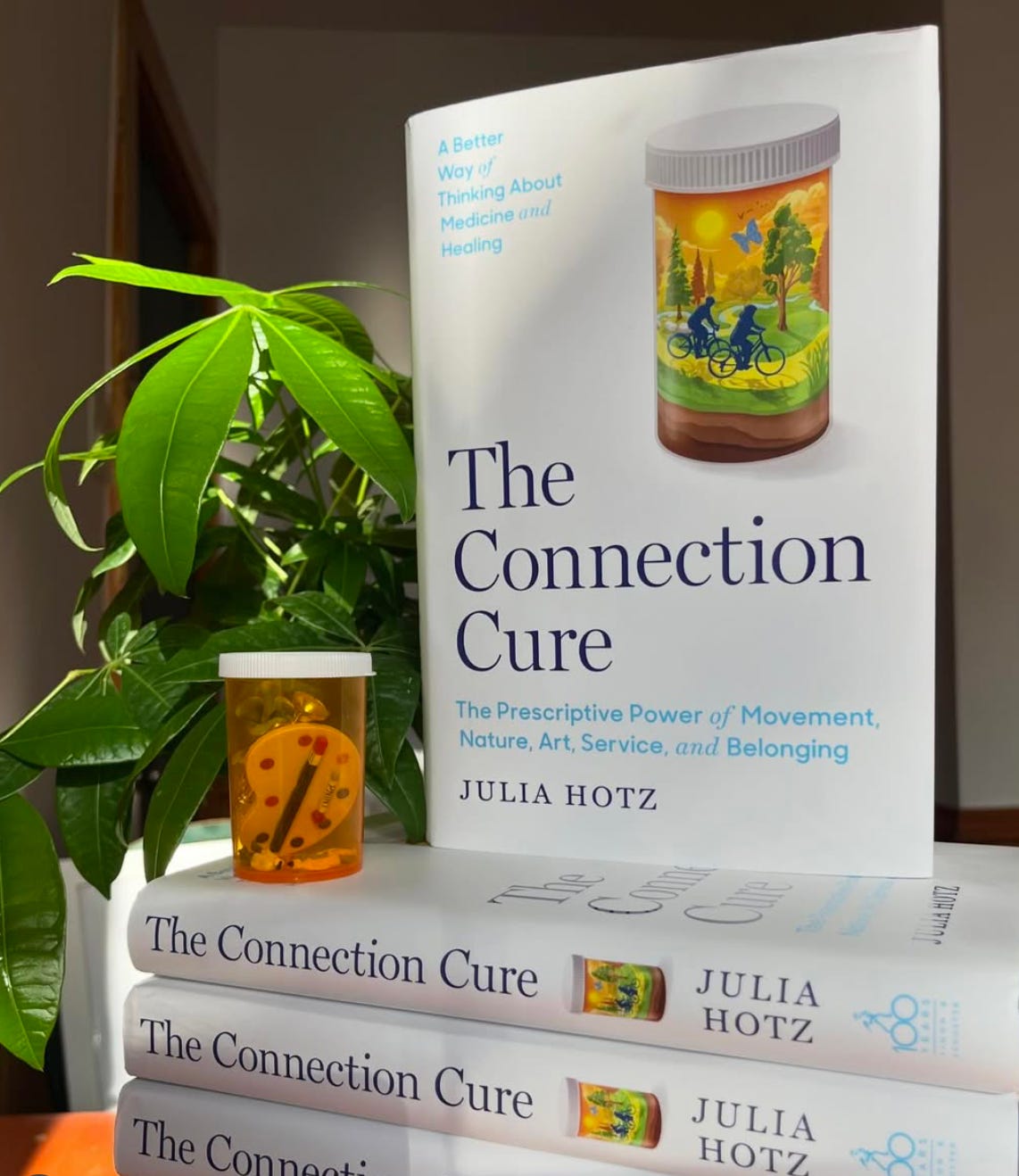July 20: What Really Happened Last Week
Mental health cuts, Alligator Alcatraz, and people power
Hello friends! Greetings from Helsinki on my way to Stockholm, where I am interviewing climate emotions researchers for my new book and finding time for a daily sauna.
Luckily, Kate Woodsome has agreed to return for a second week to guest-host the news roundup.
Don’t worry and please don‘t hit unsubscribe: The Golden Hour’s Friday essays will remain free for all. If you want to read this but can’t swing $5/month, simply pay what you CAN afford here and drop me a line so I can comp you!
Copy this and send it to a friend who says they are “tuning out the news.”
More of you are tuning IN each week!
Hello again! This is Kate Woodsome, with the good fortune to write to you for a second week in a row. Formerly of The Washington Post, I now uncover the ties between mental health and democracy on my Substack, Invisible Threads.
I left mainstream media last year because I no longer could rationalize the trauma, burnout and moral injury pervasive in the industry. The fallout from my covering the Jan. 6 Capitol attack contributed to the decision, and I’m relieved to be developing stories, education and tools to support individual and collective wellbeing without living in a perpetual state of fight, flight or freeze.
This week, I’m sharing news that may elicit both relief and despair. Remember that we are part of a larger universe and there’s a whole community of people who care about making it better.

This Week
1. "Social Prescriptions" for mental health gain medical recognition
2. Federal mental health funding cuts threaten community safety net
3. A thermal pool, ancient ice and interstellar visitors prove science is (still) happening
4. “Alligator Alcatraz” is worse than you think, and it’s good that we know this.
5. People Power: England empowers residents to save local institutions
1. "Social Prescriptions" for mental health gain medical recognition
If Big Pharma has you down, a report from NPR last week delivered some good news. Healthcare providers across the United States are increasingly prescribing art classes, cycling groups, and nature walks alongside traditional medications — a practice called “social prescribing” that's gaining traction as chronic diseases overwhelm the medical system.
At least 30 countries are already using the approach, including the United States, where about 250 providers are connecting patients to community activities. Research shows social prescriptions can reduce emergency room visits and healthcare costs while improving mental health outcomes.
The practice involves “flipping the script from what's the matter with you to focusing on what matters to you,” journalist Julia Hotz (@hotzthoughts), author of “The Connection Cure,” told NPR. Hotz has been documenting how providers connect patients to community resources that address their priorities alongside medical treatment. Social connection and time in nature aren’t necessarily intended to replace medications or therapies, Hotz said, but they can complement them, as research shows healthy habits can keep chronic diseases such as diabetes at bay.
Social prescribing represents a paradigm shift from treating mental health as an individual medical problem to recognizing healing happens through community connection. Research shows this connection between individual and collective wellbeing runs deep: People experiencing loneliness are 26% more likely to die prematurely, while those with strong social connections have 50% better survival odds.
Action steps:
Ask your healthcare provider about social prescribing options in your area — or check out the Social Prescribing map to find what’s happening.
Advocate for insurance coverage of community-based wellness activities (Horizon Blue Cross of New Jersey invested in this in 2021).
Recognize that your healing journey can also strengthen democracy through community engagement.
Keep reading with a 7-day free trial
Subscribe to The Golden Hour: climate, children, mental health to keep reading this post and get 7 days of free access to the full post archives.







